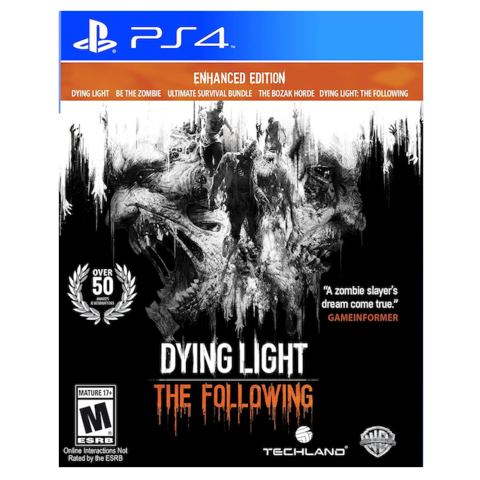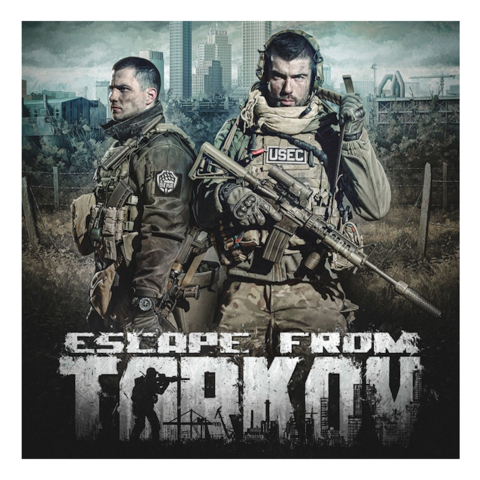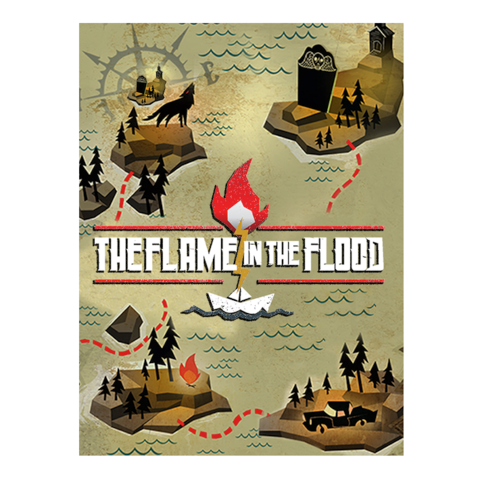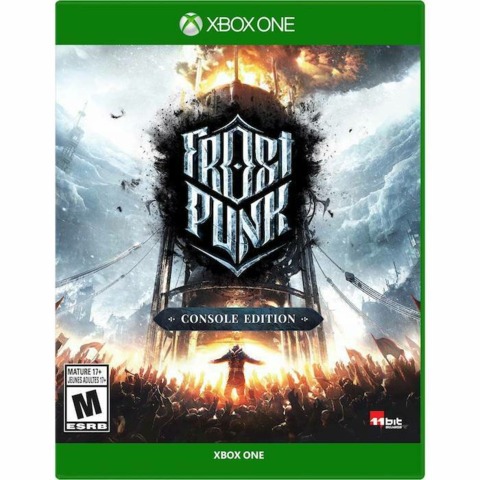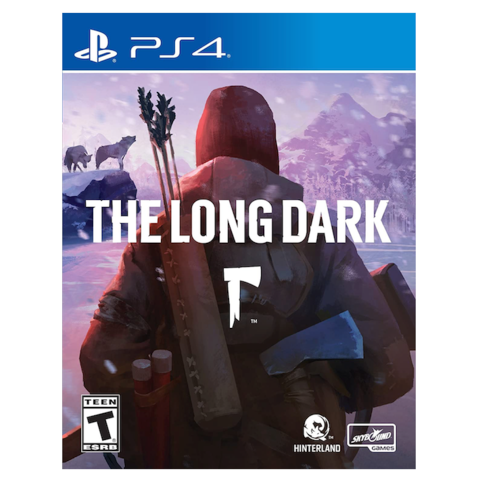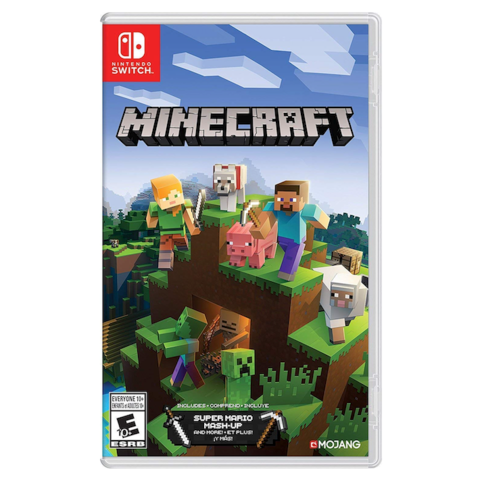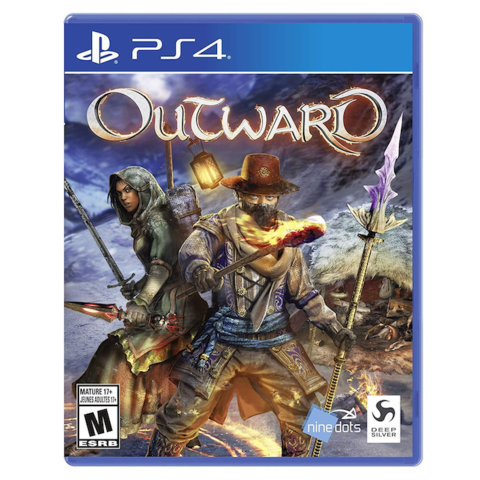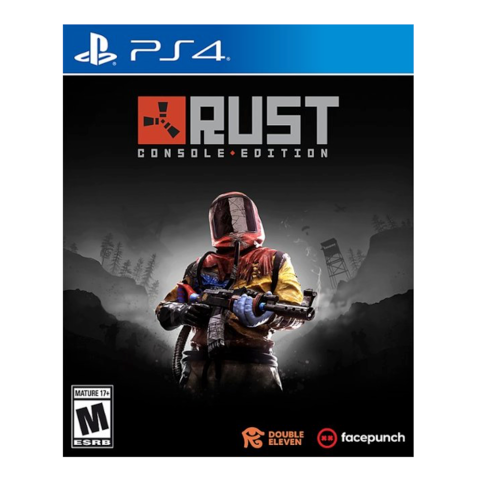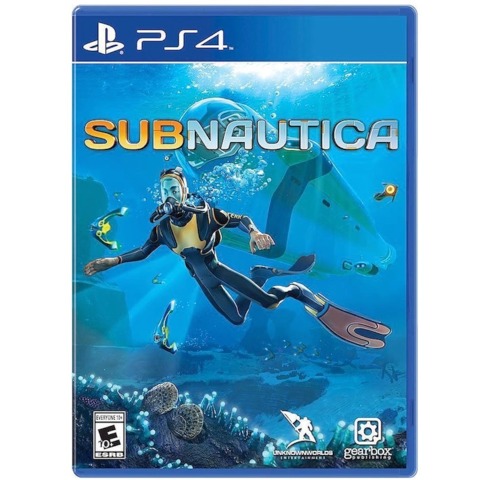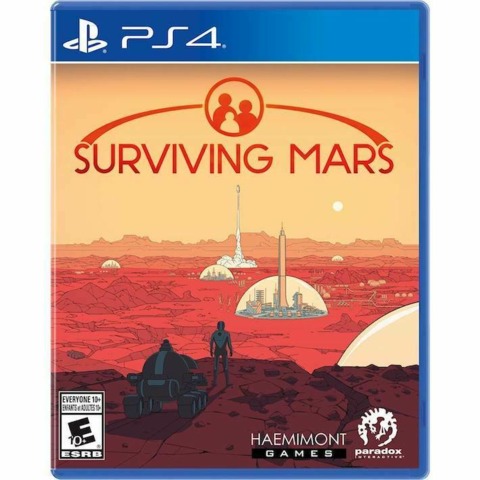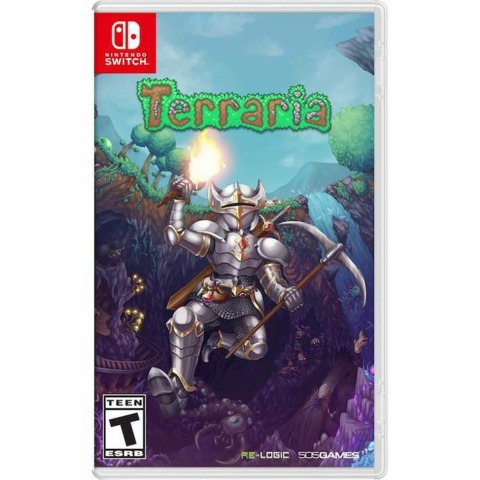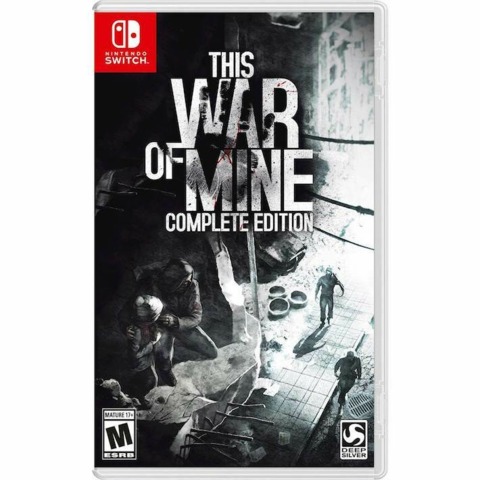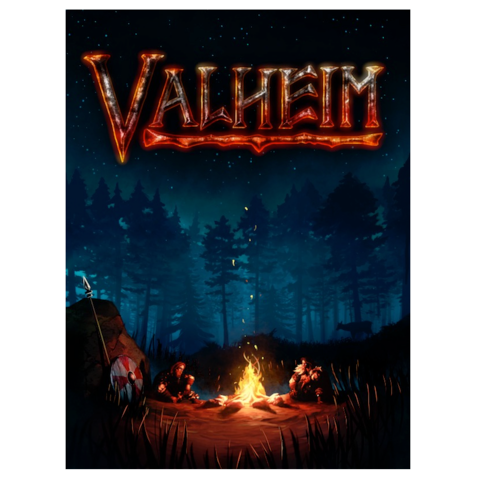|
With the indie game explosion over the last decade or so, the survival game has gone from a relatively niche genre to one with mainstream appeal. Enormous games like Minecraft, which is among the best Xbox survival games and PS4 survival games, have found audiences with players of all ages, and despite the very basic element they share--avoiding death--survival games are enormously diverse. You can attempt to not starve to death on Earth, attempt to not start to death on Mars, or attempt to not starve to death on an underwater planet filled with dangerous sea creatures. Jokes aside, it's more than just... Don't Starve, as the elements, enemy factions, and even other players can spell trouble in the best survival games. We're rounded up 20 of them below. For more games to check out, including some of the best PS5 survival games, you can check out our full list of the best PS5 games, best PS4 games, best Xbox Series X|S games, best Xbox One games, best Nintendo Switch games, and best PC games. One of the premier survival games available on current-gen platforms, Ark: Survival Evolved certainly emphasizes the "survival" element of its name strongly. In addition to the common survival-game mechanics such as hunger and thirst systems, you also must contend with shifting weather conditions that can cause your health to deteriorate even faster, as well as both wildlife and other players. Sticking together can be the key to survival through the game's tribe system, and you can also tame and train dangerous dinosaurs, which can assist in hunting or even be used as mounts when you have to fend off attackers. If you prefer, you can even rely on farming produce to survive without killing, though your enemies may not be quite as kind to you. See our Ark: Survival Evolved review. Well, that title gets right to the point, doesn't it? A take on resource-gathering and crafting that doesn't waste time with unnecessary preamble or extra fluff, Don't Starve's mix of 2D and 3D art--in the signature Klei aesthetic--makes it unlike any other game on this list, and combined with its addictive gameplay loop and punishing difficulty, it will certainly test your ability to adapt and overcome. With procedurally generated worlds, you will never experience the same game twice in a row, and the standalone expansion Don't Starve Together lets you and your friends try to make it in the cold, unforgiving world as a group. Or, if you prefer, you can try your luck with random players online, which should test just how far strangers can go to avoid actually helping each other. See our Don't Starve review. Zombie games are a dime a dozen, at least at first glance, but there is a reason that Techland's Dying Light was such a success--and far better than its previous game, Dead Island. Instead of a more traditional movement system you'd expect from a first-person action title, Dying Light makes heavy use of parkour mechanics to allow for daring escapes that really emphasize the danger of a swarm of zombies much better than a game where you can just blast your way through the entire horde. That doesn't mean you can't still deliver some pain to the zombies with a variety of weapons like hammers, bows, and shotguns, but the balance of "fight or flight" creates something we just don't see in many other open-world zombie games, and it exemplifies survival better than many games that take a more traditional approach to the genre. See our Dying Light review. At first glance, Escape From Tarkov looks like any other multiplayer shooter in the same vein as Call of Duty, but it's a much more complex game with some interesting twists of its own. In addition to realistic injuries--you must account for things like fractures, hydration, and blood loss--you must carefully protect your scavenged loot because death also means dropping everything you've acquired. It's not exactly an MMO but with a player-driven economy for looted items, the risk-and-reward dynamic in Escape From Tarkov adds an extra layer of tension to every battle, meaning you'll need to watch out for deteriorating weapons, lest you have a gun jam right before you're shot in the face. Of course, that can also happen to your enemy, letting you breathe a sigh of relief and live to fight another day. To survive, you must always be one step ahead of whatever it is that wants to kill you. In the case of The Flame in the Flood, that includes not just predators, but the elements, as well. As you travel in a boat down a river and try to outpace impending rain, you'll come across towns that you can scavenge for supplies to keep yourself alive during the journey, but this can lead to unintended encounters with the local wildlife. The Flame in the Flood's dark premise is contrasted by its gorgeous, minimalist art style, as well as a beautiful, Americana-driven soundtrack by Hot Water Music's Chuck Ragan. Even the most morbid, difficult moments are still somewhat calming, at least up until you die and have to try again. See our The Flame in the Flood review. A survival game that also combines elements of horror and cooperative open-world exploration, The Forest features a "fish out of water" setup in which you're hunted by genetically muted locals while trying to survive the wilderness. The choice for how you do this is up to you, ranging from creating a robust fortress or sneaking around to take out the attackers stealthily. Like other survival games such as Minecraft, there is a day-night cycle, encouraging you to explore and scavenge while it's light before retreating to the safety of your shelter at night. With friends by your side, things can be a little less daunting, but you'll still need to find food if you don't want to die by starvation--and that's just as terrifying as the enemies. See our The Forest review. Usually, survival games task you with surviving--as in you, either as yourself or a character. 11 bit studios' Frostpunk, however, is a "society survival game" that sees a world plunged entirely into an endless winter. It's up to you to keep your civilization from death, managing their resources and establishing the laws that will prevent total chaos and anarchy while still maintaining your people's health and happiness. The decisions you make can have unintended and permanent consequences, both good and bad. Should you rule smartly, you can even invest in advanced technologies, returning people to some degree of normalcy. Available on last-gen consoles, PC, Mac, and even mobile, Frostpunk is also getting a sequel, though it doesn't currently have a release date. See our Frostpunk review. You don't necessarily need some supernatural or science-fiction threat in order for the apocalypse to feel terrifying. In The Long Dark--another game that sees the world plunged into constant winter--in the story mode you must venture out, alone, searching for your companion after you're separated. The separate survival mode offers more freedom, with surviving as long as possible being your only goal and permadeath looming over every decision you make. With every action you make, you spend calories that must be replenished with food, but the threat of the elements always balances out your need to go find more resources. Multiple difficulty settings mean that you can gradually ramp up the challenge if you're new to the experience. See our The Long Dark review. How could any survival game list not include Minecraft? Not only is it one of the most influential and successful video games ever made, but it's also still damn good a decade after its launch. The procedurally generated world is filled--or can be filled--with plenty of unexpected areas, including veins of valuable minerals and clusters of enemies, and it's up to you to decide how to protect yourself from the monsters and exploding Creepers that threaten your survival. Of course, if you want a break, you can always go into the Creative mode, instead, and focus exclusively on building the structure of your dreams. It might even give you some ideas for how you can protect yourself in the main game! See our Minecraft review. When it first launched in 2016, No Man's Sky was a shell of a game. Most of its best systems weren't even created yet, and the prospect of exploring for the sake of exploring didn't exactly thrill many players. But Hello Games didn't give up, implementing base-building, multiplayer, and a variety of other quality-of-life improvements to make No Man's Sky the ultimate space exploration game. Finding new wildlife, establishing your operations on a planet, and seeing what it has to offer--all while monitoring your life-support systems--now feels satisfying and fulfilling, and continued updates have only made the game even better since then. It's one of last generation's biggest gaming redemption stories, and the initial reception shouldn't turn you off from playing it. Read our No Man's Sky Beyond review. Not a survival game in the traditional sense--you don't have to tell us--but a game with mere survival at the forefront for nearly the entire journey, Resident Evil 7 reinvigorated a series that had gone so far off the rails, it didn't even know what rails were anymore. Set largely in one big house, the game sees new protagonist Ethan Winters attempting to evade a family that seemingly can't die. A twisted secret lies at the heart of this mystery, in true Resident Evil fashion, but the game feels noticeably different than the other Resident Evil games--especially everything from the current century. Running away is not only an option, but often the best option, and ammunition is scarce enough that you actually have to think about whether it's worth defending yourself or finding another way to get where you need to go. See our Resident Evil 7 review. Melding survival game elements with an open-world RPG, Outward may look like a sword-and-sworcery power fantasy at first glance, but you actually play as a pretty pathetic little weakling. Even a disease can spell the end for you in Outward, alongside thirst, and no playthrough will ever be exactly the same. The game also makes sure you don't manipulate its systems by constantly auto-saving in a similar manner to an MMO, but with perseverance and some careful planning, you can become a hero. If you want, you can even join a friend--both in person or online--and attempt to not get killed by the most trivial of enemies together. A survival game that should be right up the alley of any Prison Architect fans, RimWorld follows a small group of colonists--unwilling colonists, we may add--who have crashed onto a new planet and must attempt to rebuild and thrive in their serendipitous situation. They aren't alone on the planet, with raiders and wildlife alike seeking their heads, but you can also tame your own beasts to do your bidding and set up defensive positions to blast anyone who comes close. Injuries and disease are tracked to specific body parts and you can even get a prosthetic limb if need be, and combat isn't just based on stats. Instead, there is an actual cover system you can manipulate through your structures' placement and design. Rust, created by Garry's Mod studio Facepunch--has had an interesting journey. In early development, it seemed too eager to imitate other survival games, even including zombies at one point, but it gradually established its own identity as a straightforward and addictive survival game. With an island full of wildlife and other players, the latter of whom can either help or hurt you, you need to always be on your toes, and finding allies you are comfortable with can be the difference between life and death. Thanks to a relatively recent popularity surge caused by streamers, the game has gotten a second wind, and there is even a separate console edition if you don't have a PC. Fully customizable and with enough difficulty options for every kind of player, Starbound mixes science-fiction exploration and adventure with survival elements to create a charming and inspired take on the genre. There isn't a set end-goal, though you can find your own victory by battling enemies or venturing out to take over other planets. On the Hardcore difficulty setting, you'll need to eat to survive and if you die, you're dead for good, while Survival difficulty replaces this with an "items drop on death" feature for a little more flexibilty. With mod support further letting you personalize the experience, Starbound is quite literally what you make of it. Getting mauled to death by land creatures is scary enough, but there is little more terrifying than dying underwater. In Subnautica, you have no choice but to venture into the murky depths of a watery planet in order to survive, and ironically, you still need to find water to drink because salt water will only kill you faster! You'll have a chance to upgrade your vessel's hull in order to protect it from the increasing pressure as you venture deeper into the abyss, and you can even establish bases and build other vehicles to assist you in your research and exploration. This isn't a simple "survive" game, however, with a mystery to uncover at its core, so those who aren't into the basic "dont' die" gameplay loop may still enjoy Subnautica. A sequel, Subnautica: Below Zero, was also released in 2021 and takes place two years after the original game. See our Subnautica review. Enjoy city-building games but wish you had more control over individual people and didn't have to do with boring old Earth? Surviving Mars might be just what you're looking for, then, as the game has you build up an early human colony on the titular planet while also having to deal with the people who make up your civilization. Each one has its own AI, meaning you won't be able to make universal, sweeping decisions that have the same impact on everyone, and their problems can become your problems if you don't manage them effectively. But it's more than just survival, as you can discover the hidden mysteries of Mars itself, some of which may not be pleasant. See our Surviving Mars review. If you took Minecraft and turned it into a 2D game, it would look a whole lot like Terraria, though the focus is on more than just survival and building structures here. Venturing into the deep caverns of the randomly generated worlds you explore could lead to rare resources and materials to let you craft something truly amazing, or it might just make for a great anecdote about the dangerous areas you encountered, instead. Where Terraria differs from games like Minecraft is by also putting a significant focus on how the game feels, playing more like a retro action game for those who want to focus on combat. See our Terraria review. One of the darkest games on this list, because it sheds fantasy and sci-fi for the realistic horrors of war, This War of Mine puts you in control of the civilians caught in the middle of an armed conflict, unable to escape danger and merely hoping to survive by the time the battles have ended. You'll need to gather basic supplies to survive, but the risk of being caught in the crossfire can deter you from getting what you actually need, and the decisions you need to make aren't easy. Who is worth sacrificing for the good of the group? Can such a choice even be made? See our This War of Mine review. A surprise hit on Steam that managed to outperform some of the biggest PC games, Valheim scratches the survival game itch without being locked into some of the genre's core elements. The fantasy game puts you in a procedurally generated world where you can work cooperatively with up to nine other players, and you can build a house and even an entire settlement alongside smaller items like weapons, armor, food, and--seeing as this is a Norse world--mead. The combat is also a little bit more advanced than similar survival games, with mechanics for dodging and blocking attacks, and you can also venture out into the sea and test your skills as the captain of a vessel. Only $20 and with the Hearth & Home update adding even more content to the game, including new furniture and food items, it's a refreshing take on survival.
|




